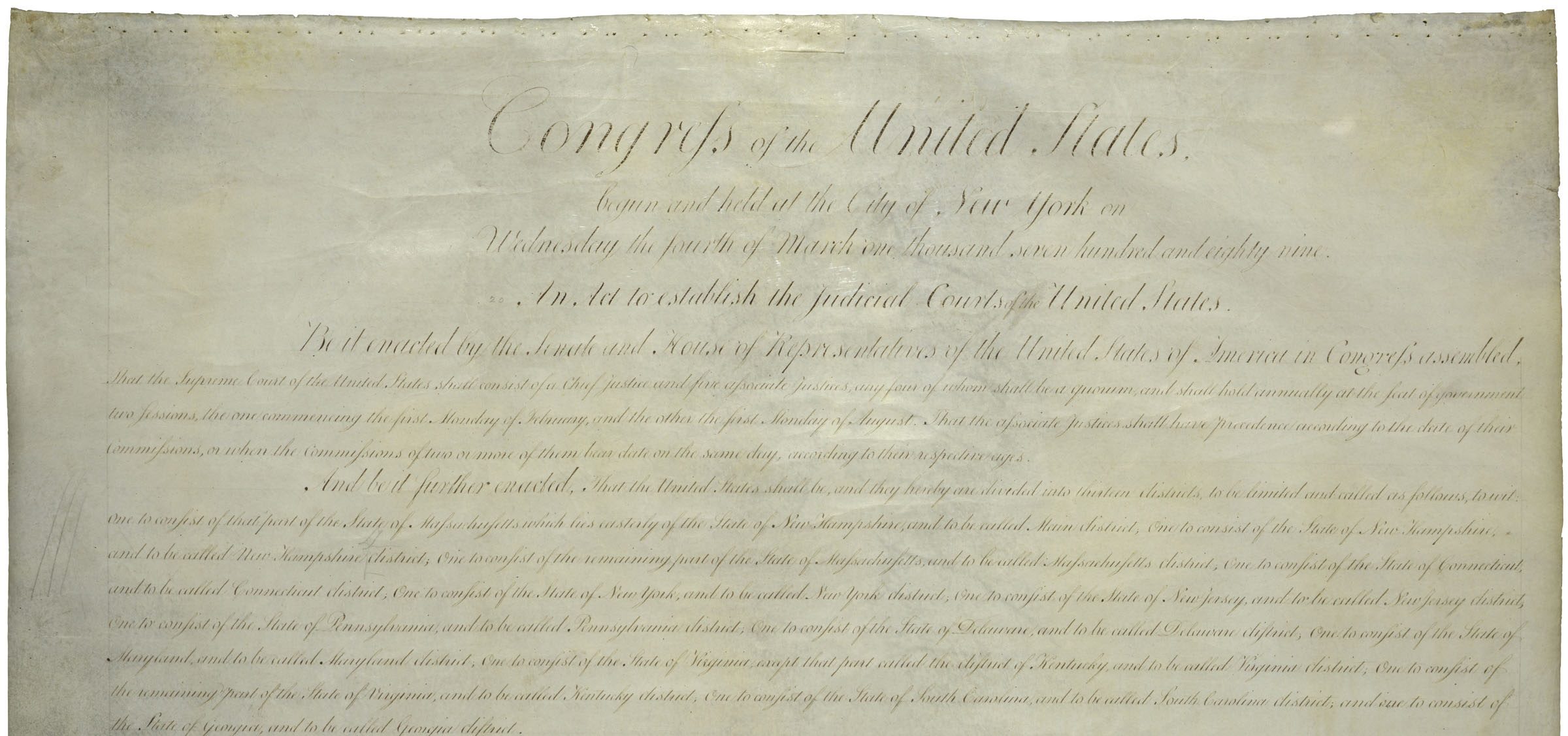In United States v. Walsh, No. 21-1220 (7th Cir. Aug. 24, 2022), a 2-1 panel holds that a federal district court did not abuse its discretion in denying recusal from sentencing a criminal defendant who made a direct and credible death threat against the judge, his family, and court employees in court. “At 71 yearsContinue reading “Federal Judge Subject to In-Court Death Threat by Criminal Defendant Not Required to Recuse Himself from Sentencing, Holds Split Seventh Circuit Panel”
Monthly Archives: August 2022
Seventh Circuit Affirms Dismissal of RICO Lawsuit Because It Would Require Intrusion on the “Motives of Individual State Legislators” in Passing a Utility Rate Hike, Citing the Rule of Fletcher v. Peck
In South Branch LLC v. Commonwealth Edison Co., No. 21-2861 (7th Cir. Aug. 22, 2022), a potentially massive Racketeer Influenced and Corrupt Organizations Act (RICO) civil case challenging corrupt influence in the Illinois General Assembly, ends at the pleading stage. The panel cites both the “filed rate doctrine” that precludes judicial review of utility ratesContinue reading “Seventh Circuit Affirms Dismissal of RICO Lawsuit Because It Would Require Intrusion on the “Motives of Individual State Legislators” in Passing a Utility Rate Hike, Citing the Rule of Fletcher v. Peck”
En Banc Fourth Circuit Clarifies That Order of Dismissal Without Prejudice but No Leave to Amend Is Appealable “Final Order” Under 28 U.S.C. § 1291
In Britt v. DeJoy, No. 20-1620 (4th Cir. Aug. 17, 2022), the unanimous en banc Fourth Circuit abandons a case-by-case approach to finality under 28 U.S.C. § 1291 and adopts a bright-line rule that “[w]hen a district court dismisses a complaint or all claims without granting leave to amend, its order is final and appealable.”Continue reading “En Banc Fourth Circuit Clarifies That Order of Dismissal Without Prejudice but No Leave to Amend Is Appealable “Final Order” Under 28 U.S.C. § 1291”
En Banc Fifth Circuit Reaffirms Fourteenth Amendment Limits on Fifth Amendment Personal Jurisdiction Over a Foreign Defendant, Rejecting Bid to Overrule Prior Decisional Law on This Issue
In Douglass v. Nippon Yusen Kabushiki Kaisha, No. 20-30379 (5th Cir. Aug. 16, 2022) (en banc), the Fifth Circuit holds 12-5 that the Fourteenth Amendment due process standards for personal jurisdiction over foreign defendants applies equally to the Fifth Amendment due process clause. A prior panel decision had agreed, see May 3, 2021 blog, butContinue reading “En Banc Fifth Circuit Reaffirms Fourteenth Amendment Limits on Fifth Amendment Personal Jurisdiction Over a Foreign Defendant, Rejecting Bid to Overrule Prior Decisional Law on This Issue”
Unquantified Nominal Damage Award Rendered Judgment Non-Final, Holds Eighth Circuit
In Perficient, Inc. v. Munley, No. 21-2121 (8th Cir. Aug. 9, 2022), the Eighth Circuit was compelled to dismiss an appeal of a summary judgment decision for the plaintiff because the judge left the nominal damage award unfinished. “Perficient moved for summary judgment against its former employee Munley and Munley’s new employer Spaulding Ridge inContinue reading “Unquantified Nominal Damage Award Rendered Judgment Non-Final, Holds Eighth Circuit”
Sixth Circuit Holds That 18 U.S.C. § 3731 Gives It Appellate Jurisdiction Over Order Denying Motion to Admit Government’s Evidence in Terrorism Prosecution
In United States v. Musaibli, No. 22-1013 (6th Cir. Aug. 2, 2022), holds that 18 U.S.C. § 3731, which gives the court of appeals jurisdiction to hear the U.S. Government’s appeal of any “decision or order of a district court suppressing or excluding evidence” also applies to a lower-court order denying the government’s motion toContinue reading “Sixth Circuit Holds That 18 U.S.C. § 3731 Gives It Appellate Jurisdiction Over Order Denying Motion to Admit Government’s Evidence in Terrorism Prosecution”
Seventh Circuit Notes Important Difference Between Rejected Fed. R. Civ. P 68 Offer and Non-Rule 68 Settlement Offer in Determining Reasonable Attorney’s Fee
In Cooper v. Retrieval Masters Creditors, No. 18-2358 (7th Cir. July 29, 2022), the Seventh Circuit vacates and remands an attorney’s fee award that was improperly reduced in a Fair Debt Collection Practices Act (FDCPA) case in reliance on a rejected, non-Rule 68 settlement offer in a mediation. “In February 2016, defendant Retrieval‐Masters Creditors BureauContinue reading “Seventh Circuit Notes Important Difference Between Rejected Fed. R. Civ. P 68 Offer and Non-Rule 68 Settlement Offer in Determining Reasonable Attorney’s Fee”
